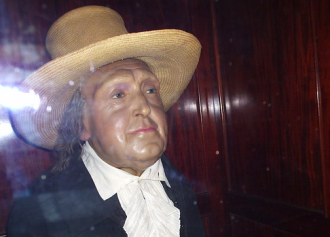 Researchers at University College London (UCL) claim to have discovered a new method of processing fibre optic signals.
Researchers at University College London (UCL) claim to have discovered a new method of processing fibre optic signals.And that, they say, could double the distance of data travelling error free through transatlantic cables.
Signals right now need to be boosted which can be difficult if the cables are 20,000 leagues beneath the sea.
But the technique, say the UCL boffins, mean that costs will be lower and will correct transmitted data if they’re corrupted or distorted on their way.
The scientists have eliminated interactions between optical channels and believe they can transmit error free data from 3,190 kilometres to 5,890 kilometres.
The researchers created a so-called “super channel”which consists of a set of frequencies that can be encoded using amplitude, phase and frequency. They coupled this with a high speed super receiver plus signal processing techniques they developed.
The next step is for the researchers to test this method on denser super channels used in digital cable TV, cable modems, and Ethernet connections.





